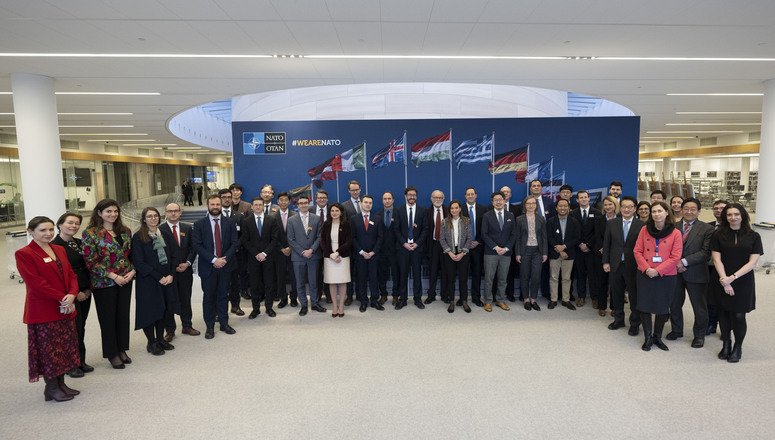NATO
January 27, 2023
NATO hosts conference of Allied Contact Point Embassies in partner countries
NATO hosted its biennial conference of Allied Contact Point Embassies in partner countries on 26 and 27 January 2023. The event brought together 38 delegations representing NATO in 33 partner nations. The newly-appointed representatives attended briefings and panel discussions with NATO leadership focusing on NATO partnerships, NATO operations, NATO’s Communications Strategy and public diplomacy.
During his keynote speech, Secretary General Jens Stoltenberg highlighted the interconnected nature of today’s security challenges….“In today’s interconnected world, the security of allies and partners is closely linked”, he said.
Speaking on NATO’s strategic communications, Ambassador Baiba Braže, Assistant Secretary General for Public Diplomacy, said that “Contact Point Embassies constitute a truly global network. As we face the biggest security challenge in a generation, this cooperative network is important more than ever both for allies and partners.”
The embassies serve as a contact point and provide information about the role and policies of the Alliance. They contribute to NATO’s outreach efforts and enable NATO to engage with local audiences and increase the impact of its work. Currently, NATO has a network of 44 Contact Point Embassies in 38 partner countries.
Blue: NATO members
Light Blue: Enhanced Opportunity Partners
Orange: Partnership for Peace members
Red: Mediterranean Dialogue members
Purple: Istanbul Cooperation Initiative members
Yellow: Individual Partnership Action Plan members
Green: Partners Across the Globe
The blue mark east of Colombia is French Guiana.
====
NATO
January 25, 2023
NATO launches new cooperation initiative with experts from partners in the Indo-Pacific region
On 25 January 2023, NATO launched an initiative named ”Futures in the Indo-Pacific”. This endeavour has been developed through the NATO Science for Peace and Security (SPS) Programme, and will consist of a series of discussions amongst experts from Belgium, Australia, France and Japan, for the next two years. Their exchanges will examine relevant developments in the Indo-Pacific and their potential implications for security in the Euro-Atlantic area, hence contributing to furthering NATO’s cooperation with its partners in the Indo-Pacific.
The launch of “Futures in the Indo-Pacific” was marked by an official event at NATO Headquarters in Brussels, with the participation of experts from institutions based in two NATO Allies and two partner countries in the region: the Centre for Security, Diplomacy and Strategy (CSDS) of the Brussels School of Governance-VUB, the National Institute for Defense Studies (NIDS) in Japan, the Australian Strategic Policy Institute (ASPI) and the Centre for International Studies (CERI) at Sciences-Po Paris.
“Our unity is our strength and partnerships play an important role in the new international security landscape,” said Mrs. Carmen Romero, Deputy Assistant Secretary General for Public Diplomacy…She also stressed the importance of building strong partnerships with countries in the Indo-Pacific, in line with NATO’s new Strategic Concept, which underscores the importance of the Indo-Pacific region for NATO, given that developments in that region can directly affect Euro-Atlantic security. Furthermore, she highlighted the historic participation of the leaders of Australia, Japan, New Zealand and Republic of Korea in the 2022 NATO Summit in Madrid.
Three more events are scheduled throughout 2023, in Canberra, Tokyo and Paris, with a final conference planned in 2024 in Brussels.

